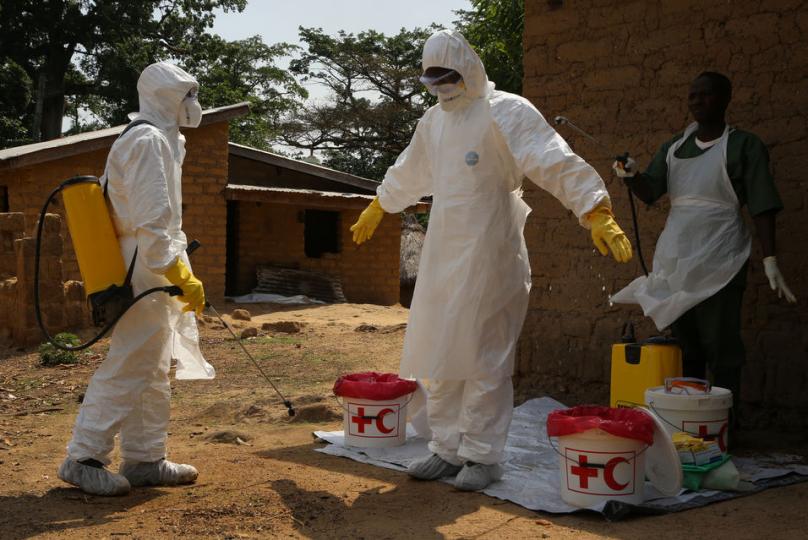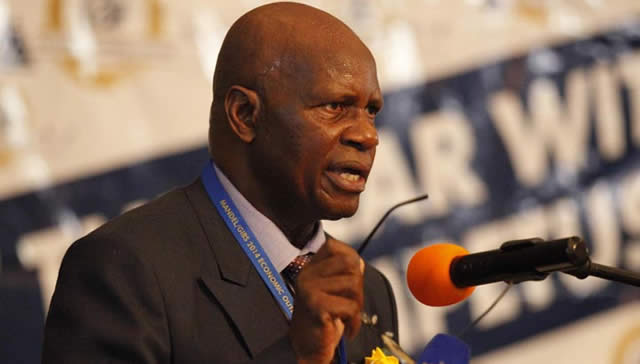EU to scale up Ebola response

Paris – European foreign ministers meet today under pressure to scale up their response to the Ebola epidemic, after warnings it could become the “disaster of our generation”.
Ahead of the talks, Aid agency, Oxfam, which works in the two worst-hit countries – Liberia and Sierra Leone – issued a stark call for more troops, funding and medical staff to be sent to the west African epicentre of the outbreak.
“There’s a very strong political focus on this, as the most immediate crisis facing us,” a European diplomat said ahead of the meeting in Luxembourg.
Another EU diplomat said Britain — which has a navy ship bound for Sierra Leone laden with medical staff and supplies – hoped to “galvanise EU action on Ebola”.
“There’s a real sense that this is a tipping point and we must get to grips with it now,” said the diplomat.
“If we can deal with it in the country, we don’t have to deal with it at home.”
The worst-ever outbreak of the deadly virus has so far killed more than 4 500 people, mainly in Guinea, Liberia and Sierra Leone, but isolated cases have now begun to appear in Europe and the United States.
Oxfam chief executive, Mark Goldring said the world was “in the eye of a storm” as the charity warned Ebola “could become the definitive humanitarian disaster of our generation”.
“Countries that have failed to commit troops, doctors and enough funding are in danger of costing lives,” he said.
Part of the solution, the EU diplomats said, was giving international medics – on the frontline in the Ebola battle – the confidence they would receive EU-level care if they get sick, with access to medical evacuation flights.
The World Bank has warned the battle is being lost against the disease, which spreads via contact with bodily fluids and for which there is no licensed treatment or vaccine.
A global UN appeal for nearly $1bn to fight the spread of the disease has so far fallen short, although a spokesman said more money was coming in daily.
Out of $988m requested a month ago, the UN said on Saturday $385.9m had already been given by a slew of governments and agencies, with a further $225.8m promised.
As the death toll in Sierra Leone rose to 1,200, the country said it was putting Defence Minister, Alfred Paolo Conteh, in charge of a new national Ebola response centre.
With panic spreading in Western countries fearing a spread of the tropical disease, US President Barack Obama named an “Ebola czar” to coordinate crisis response.
Obama also cautioned against “hysteria”, after a string of Ebola false alarms among a US public, spooked by the news that two American nurses had contracted Ebola after treating a Liberian patient who died on October 8.
“This is a serious disease, but we can’t give in to hysteria or fear,” Obama said. “We’ve to be guided by the science.”
At the Pentagon on Friday, an entrance was closed after a woman vomited in a parking lot. US authorities later found no evidence that she had contracted Ebola.
Meanwhile, US media reported on overzealous action taken by some worried communities, including a group of Mississippi parents ,who pulled their children from school because the principal had travelled to Zambia – a country far from the Ebola crisis in west Africa.
The US president played down the idea of a travel ban from west Africa, as World Bank chief ,Jim Yong Kim criticised countries for being overly focused on securing their own borders, rather than helping tackle the epidemic at source.
The United States, Britain and Canada were joined this weekend by France in carrying out airport screenings for passengers from Ebola-hit zones. The EU is to further review the situation this week.
One 40-year-old passenger from Guinea, where the epidemic began in December, was taken to a Paris hospital with a suspected fever on Saturday but officials later said she was not suffering from vomiting or diarrhoea.
Meanwhile, Nigeria is expected to be declared Ebola-free today, just three months after fears that the virus could spread like wildfire through Africa’s most populous nation.
The World Health Organisation (WHO) is preparing to announce that Nigeria has not had a confirmed case of Ebola for 42 days – or two incubation periods of 21 days – just as it did for Senegal on Friday.
The achievement is being welcomed, with no end in sight to the disease that has claimed more than 4,500 lives this year, most of them in west Africa, and mounting fears about cases around the world.
Close attention is being paid to how Nigeria, with an under-funded and ill-equipped health system, managed to contain the virus, as specialists look for a more effective response to control its spread.
But there were warnings against any premature celebration, with complacency still a risk and luck considered to have played a part in containing the outbreak. – AFP










Comments